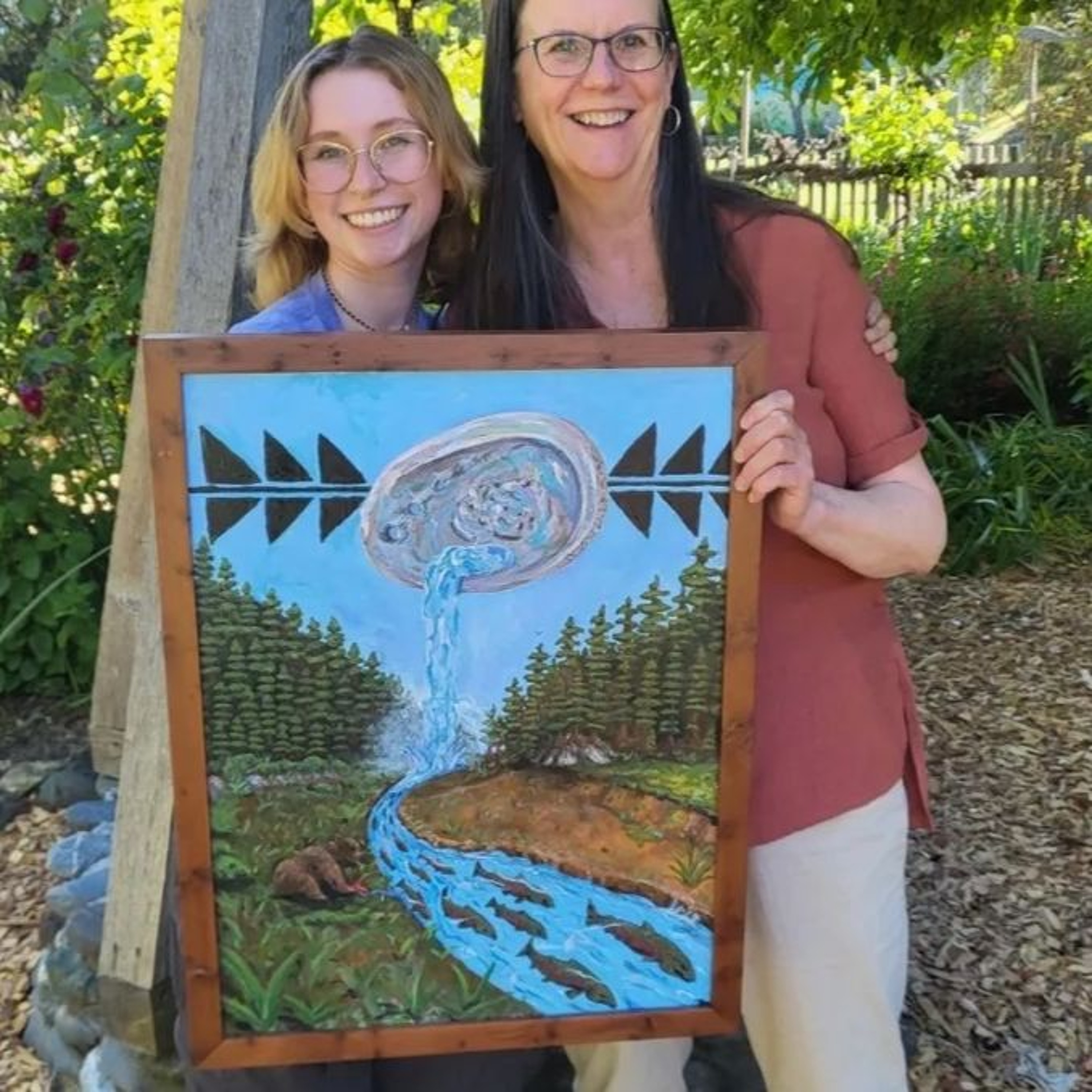Episode Transcript
[00:00:01] Speaker A: In tonight's County Conversation, we feature our monthly check in with Humboldt's 5th district supervisor, Steve Madrone, who represents the unincorporated areas spanning Willow Creek to Trinidad, Hoopa to Orleans and McKinleyville to Oric.
Supervisor Madrone. Tomorrow's supervisors agenda is jam packed with items including the proclamation of May as older Americans monthly, a proposed nitrous oxide ordinance, and amendment to the tobacco retailer licensing ordinance. But of particular note at 11am Is the bid to award the John Haynes Veterans Memorial Building project.
Can you give us an overview on what the board will be voting on and what the possible outcomes or implications of that decision might be?
[00:00:57] Speaker B: Yeah, well, as you know, there's been a long standing effort to replace the vet saw that was demolished a year or so ago. And unfortunately, 10, 15, 20 years ago, the county did not do a good job of maintaining that facility, which is our responsibility. And so the roof was leaking, the walls got mold, and ultimately it had to be demolished, which is very unfortunate. At any rate, promises have been made, efforts have been engaged in to replace that hall. It was going to be a two or three million dollars project, but as it's turned out, it's become a six million dollar project, which is quite a substantial increase in cost.
But at any rate, what is on the agenda tomorrow is for the board to consider awarding a bid to the lowest bidder to construct the hall. And I think that's for a little less than 4 million. But with the cost to date for engineering, design, permitting, et cetera, and the cost of managing the project, total will be a little less than 6 million. So the board will be deciding whether or not to approve that contract tomorrow.
[00:02:09] Speaker A: You were one of the dissenting votes when the board approved the expanded budget for the Veterans hall project.
Can you share how you plan to vote tomorrow and what concerns you have about moving forward?
[00:02:24] Speaker B: Yeah, well, as far as how I'll vote tomorrow, I'm going to be listening carefully to all the comments from the public as well as staff, as you may know. You know, if we already make up our mind in advance, then we show some bias and in fact can be ruled ineligible to vote on things. So it is incumbent upon our board members to keep an open mind and listen to all the information being presented and then make a decision based on all of that. So I will be doing exactly that. Yes, a year or so ago I did vote against the project because I felt that we could have built a substantially good haul for 2 or 3 million. And given our county budget crisis, I just felt that it was way too much money to be spending, but then it did get approved and now here's where we're at now. So that's a very different situation. I support our veterans. I know it's a huge deal to get this hall rebuilt for our veterans in southern Humboldt for many, many reasons, including the healing that goes on when they're able to get together with each other and share their life stories as well as their future dreams, all those kinds of things. So I will be keeping an open mind and moving forward tomorrow.
[00:03:42] Speaker A: Sticking with this topic, part of the cost increase and the overall rebuild was due to deferred maintenance and delays that allowed inflation to drive up expenses. Are you concerned we could see even more cost increases down the line, for example, from tariffs or supply chain issues, and that the contractor might request additional funding?
And a second part to that question, do you see this situation as part of a larger pattern where the county delays action on critical infrastructure projects and what lessons should be taken from how this particular project has unfolded?
[00:04:27] Speaker B: Yeah. Well, Lauren, those are all really, really important considerations and certainly will probably affect the cost.
And the only way that affects it typically is it goes up and it goes up. And often with contracts like this, you'll have change orders where the contractor might have put in a low bid, but may have observed that there is opportunity to make some changes in that bid as construction ensues. And that's not unusual for there to be bid award changes, you know, through change orders and things as, as we progress. And certainly tariffs on steel, all kinds of things out there are going to affect the ultimate cost. So 6 million is likely not the the final number. And yeah, the county has a lot of facilities and we struggle with maintaining those facilities, which is one of the reasons why I felt that we should be trying to build something a little more modest and not spend such an exorbitant amount of money. But regardless, that's the point we're at at this point. And I know the county staff will do their best to control costs. And you know, to be honest, the, the veterans themselves have done a lot to try and minimize cost by reclaiming a lot of the hardwood flooring and other elements of the the previous haul to try and help save some costs. So we're all in this together and we'll be moving forward more than likely tomorrow.
[00:05:52] Speaker A: Switching gears, it's my understanding that you were the only supervisor who publicly raised concerns about Immigration and Customs Enforcement contracting with Avelo Airlines, which operates out of the Arcata Eureka Airport. While the board hasn't taken formal action the county is in the process of hiring an aviation director and exploring economic development opportunities at the airport.
Are there any updates on that front? And do you believe the county should take a formal position on whether ICE affiliated carriers should be allowed to operate here?
[00:06:31] Speaker B: Yeah, well, that's certainly something that's been in the news. And no, the county has not taken a position.
There is some evidence out there that suggests that even United has engaged in these kinds of carrier activities in the past. I don't know the details of their current situation, but it's disturbing. I mean, that whole situation is highly disturbing for a country that has a constitution and a country that is run by the rule of law. And, you know, without fair opportunity for people to defend themselves. You know, nobody's saying that illegal, violent immigrants should be allowed to stay. But there is due process for all these things. And, you know, if we just throw due process to the winds, then all of us can be potentially subject to all kinds of detainers and other things that could happen if we don't have that, that right to due process. So certainly a complicated issue and, you know, we'll see if it comes before the county as a whole or not.
[00:07:36] Speaker A: And the final question I want to throw at you, you've long been a champion for fisheries and watershed health, and there's a lot unfolding space right now between the announcement of a third consecutive commercial salmon season closure and the recent news that the Mad River Hatchery is shutting down. What are your thoughts on the future of salmon recovery efforts on the north coast? And I understand you recently attended the Salmonid Restoration Federation conference. Were there any key takeaways or potential solutions that stood out to you?
[00:08:14] Speaker B: Yeah, well, the key takeaways are that we have a lot of work to do and we have a robust watershed restoration industry, in particular in Elbow county. And it includes a lot of ex commercial fishermen and others who have, you know, moved into these restoration fields.
Hatcheries can be a valuable aspect when run properly so that genetics aren't being, you know, skewed in the wrong direction. But it's always better to create that natural habitat for the fish to naturally spawn and rear in those off channel and in channel habitats. So in Humboldt, we're lucky to have a plethora of organizations that engage in this, including the tribes. And frankly, there's a lot of contractors who make a living employing local, local, you know, employees to do all this kind of work with heavy equipment and chainsaws, you name it. So we're going to keep doubling down on that. Yeah, the federal picture with funding is looking a little iffy right now. Luckily, we have a lot of state funding and private funding. And ultimately I'm hoping that we can create stewardship incentive programs whereby private landowners themselves are able to invest in these activities and write those expenses off their taxes, kind of like the solar tax credit. So there's a lot of room to do a lot of work, and we're going to keep doubling down on that.
[00:09:41] Speaker A: Supervisor Madrone, we have 40 seconds left. If there's anything else you'd like to leave listeners with today.
[00:09:47] Speaker B: Well, today we have a budget hearing, the first of several over the next month, month and a half, as we move towards adopting our budget for 25, 26. And of course, as people know, our county budget is in really dire shape. And so we're going to be talking with our departments today and looking at all kinds of ways to save money while still trying to provide services. So not an easy thing to do. It's going to take all hands on, on deck type of an approach. But we look forward to the input from the community on that. And we'll do our best as a county board to try and hold the ground on expenses while also trying to, you know, provide services. So stay tuned.
[00:10:32] Speaker A: That was Humboldt County's fifth District supervisor, Steve Madrone, joining us for our regular check in on county conversations, which you can catch on the first Monday of each month. If you have a question you would like asked, you can email it to newsmud.org.


